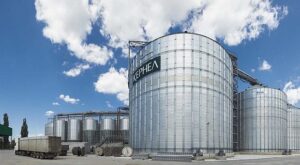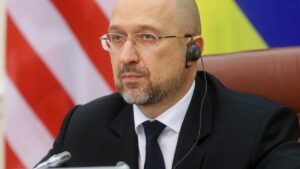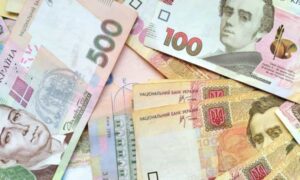
Agroholding “Kernel”, taking into account the continuation of Russia’s war against Ukraine, in the spring of 2023 initiated an extension of waivers (waivers) for another year – until June 30, 2024, the company said in a statement on the Warsaw Stock Exchange.
“At the moment, the process of agreeing such an extension with the majority of creditors is still ongoing. However, the Group has signed either 1) temporary moratoriums (standstills); 2) extensions; or 3) new waivers and consents (consents) under all credit facilities, pending final agreement with those lenders with whom extensions have not yet been finalized,” Kernel pointed out.
Agroholding noted that interest will continue to accrue and be paid in accordance with the terms of the loan agreements. “The company is also currently paying and intends to continue paying interest on the Eurobonds,” the release said.
“Kernel” recalled that earlier such waivers (Waiver Letters) in order to maintain stability and preserve business and assets for a period until June 3- June 2023 were signed in respect of, inter alia, loans of Natixis PXF, ING PXF, EBRD and EIB. Under these, the agroholding has obtained a deferral of any principal repayment, a waiver of specified potential or actual defaults or events of default arising from the war in Ukraine, but has been paying interest.
It is stated that the group has already agreed with those creditors that have not yet signed new waivers and consents, the principal terms of the extension of the terms until June 30, 2024, which are subject to final documentation and approval by the respective credit committees of each creditor. Their principal conditions, in addition to extending the maturity date to June 30, 2024, are the establishment of a capital expenditure basket sufficient to support the current scale of operations and the commencement of a shareholder support process in the form of a new capital injection of at least $60 million.
As of July 31, Kernel had $1 billion 445 million of interest-bearing debt (principal amount of bank loans and Eurobonds, excluding accrued interest and lease obligations), $1 billion 148 million of cash and cash equivalents and $327 million of inventory (including 1 million 282,000 tons of grain, 103,000 tons of oilseeds, 147,000 tons of sunflower oil and 111,000 tons of sunflower meal).
A substantial portion of the accumulated liquidity will be spent in fiscal year 2024 (FY, effective July 1, 2023 – IF-U) on working capital, capital expenditures for the development of an alternative export route across the Danube, repair of facilities, damaged as a result of Russian missile strikes, to complete construction and commissioning of an oil extraction plant in western Ukraine, and to address the maintenance backlog as a result of liquidity preservation measures taken in FY2022-FY2023, it said.
According to it, the group is considering investments in rolling stock, grain transshipment on the Danube River and river fleet to ensure a monthly export volume of about 300,000 tons with an estimated capital expenditure of about $50 million. The group does not have access to credit limits at banks, relying on accumulated cash, however, it continues to negotiate with various financial institutions for credit lines for working capital or capital expenditure. The uncertainty of future VAT refunds and the possible risk of hryvnia devaluation increase the risk of significant currency losses, Kernel adds.
Regarding the delisting, the intentions of which were first announced in early March this year, the company points out that on May 15 it filed an application with the Polish Financial Supervisory Authority (PFSA), and on July 13 it submitted to the PFSA an additional legal memorandum and other documents requested by the regulator. Kernel then sent a letter to the PFSA on Aug. 1 objecting to the applications filed with the regulator in the case.
“At the time of publishing this report, the company has not received any further information on the timing of the PFSA’s decision,” it said.
Kernel Agroholding was the world’s number one producer of sunflower oil (about 7% of global production) and its exporter (about 12%) before the war. It is one of the largest producers and sellers of bottled oil in Ukraine. In addition, it is engaged in growing agricultural products and their realization.
The largest co-owner of Kernel through Namsen Ltd. – is Ukrainian businessman Andriy Verevsky, who this year increased his stake from 41.3% to 74.05% as part of the buyout and delisting of the agroholding from the Warsaw Stock Exchange.
Kernel’s net profit for the first nine months of FY 2023 (July-2022-March 2023) rose 36% to $437 mln, while revenue fell 45% to $2.715 bln.

Prime Minister of Ukraine Denys Shmyhal has thanked foreign investors for their decision to defer payments on Ukraine’s external debt until 2024.
“Investors in Ukraine’s external debt gave their consent to defer payments until 2024 with a possible extension for another year. Thank you for the step of solidarity. We are also grateful to the G7 countries for supporting this position,” Shmyhal wrote on his Telegram channel on Wednesday.
He said that thanks to this decision, Ukraine will save almost $6 billion on payments over the next two years.
“These funds will help us maintain macro-financial stability, strengthen the stability of the Ukrainian economy and increase the power of our army,” the head of government said.
The prime minister added that the holders of securities of the state-owned Ukrenergo and Ukravtodor also accepted the postponement offer, thanks to which Ukraine could better prepare “for the most difficult heating season in history and more effectively restore infrastructure destroyed by Russian terrorists.”

Creditors of insolvent Ukrainian banks received UAH 932.9 million in repayments in March 2022.
According to the website of the Deposit Guarantee Fund, UAH 1.3 million was directed to repay the claims of third-priority creditors, including payments in the range of UAH 200,000.
Some UAH 18.3 million was allocated to repay the claims of the fourth stage of individuals for a more guaranteed amount, to repay the fifth stage, the NBU claims as a result of a decrease in the value of collateral provided to secure refinancing loans – UAH 900 million, to repay the claims of the seventh stage, to individuals not related to bank – UAH 13.3 million.
Some UAH 63.7 million was allocated for extraordinary repayment of NBU claims over three months.
In total, in January-March 2022, the amount of repayments of creditors’ claims was UAH 1.03 billion, of which UAH 63.7 million were extraordinary payments to secured creditors, in particular NBU – UAH 63.2 billion.
In general, as of April 1, 2022, the claims of creditors of insolvent banks were repaid in the total amount of UAH 56.915 billion, including UAH 17.03 billion for repayment of secured creditors’ claims, UAH 15.746 billion for satisfying the NBU’s claims.
As of April 1, the fund filed 72 statements of claim against 45 banks. Defendants associated with these banks are 821 people. The total amount of these claims is UAH 100.81 billion.
In addition, the fund filed 28 civil lawsuits in criminal proceedings against 20 banks, the consideration of which is ongoing. The defendants are 60 people. The total amount of claims is UAH 16.264 billion.
The fund also initiated five legal proceedings for damages caused by criminal offenses against five banks. The total number of defendants is 5 people. The amount of claims filed is UAH 2.66 billion.